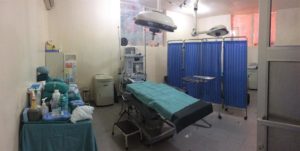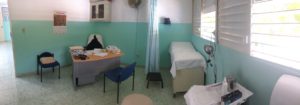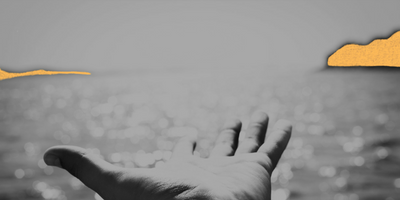At Company Nurse, we understand the importance of access to medical attention. This year, we are donating medical supplies for student Rae Smith’s mission trip with Baylor University’s Alpha Epsilon Delta, a national health pre-professional honor society. The group will once again visit the Dominican Republic municipality of Azua to provide healthcare facilities with vital medical supplies and to educate its people about taking care of their health. Before Rae embarks on her mission, she reflects on last year’s trip.
By Rae Smith, member of Baylor University’s Alpha Epsilon Delta
I walked into a small, white room packed with six beds and nine patients. Sitting on one of these beds was a frail, 50-year-old man. His wife and three kids waited anxiously, yet quietly, in the corner of the room. Leathered skin stretched so tightly over his ribs, I thought it might rip with every struggled breath he took.
Despite being checked into the hospital five days prior, he was only now receiving medical attention. Dra. Perez, the head physician, explained to me that the fluid must be extracted from the patient’s lungs to determine the diagnosis. She wedged a needle between the rib bones of his back, pulling out the syringe to reveal a milky fluid. His fate: tuberculosis. After hearing the news, his sunken eyes only showed pain and exhaustion. Turning toward the window for fresh air, he continued to fight for each breath.
The man died the next morning.

Our mission team organizing the donated medical supplies on the day of our arrival.
In March of 2017, I ventured to Azua, a municipality of the Dominican Republic, in a team of 10 students. Our mission: to bring vital supplies to the area’s medical facilities and to inform the community about proper health care.
Of all the patients that I had met during our trip, the memory of the man with tuberculosis stuck with me the most. Dra. Perez explained that if the patient had been in the United States, he would have easily lived; In Azua, his fate was sealed.
The patient had to wait in an overpopulated hospital for five days without the attention of a physician, leaving the condition of his highly-contagious disease to worsen. To make matters worse, he was crammed in a room with eight other patients, allowing for the disease to be easily spread.
Even after being diagnosed, physicians were not able to give this man the help he needed, burdened by the lack of supplies, medications, and time. The hospital’s physicians visit over 200 hundred patients a day, yet they still can’t see everyone who needs help.
Patients must often share beds, omitting the luxury of privacy to receive any medical help. Walking through the hospital in my white coat, numerous people would tug on my arm, mistaking me for an American physician, and beg for medical attention.

An emergency room in the Regional Hospital de Taiwan. Two surgeries often occur simultaneously. Most of the time anesthesia is not used for surgeries, as it is too expensive. For invasive surgeries, such as a non-laparoscopic gull-gladder removal, spinal taps are used.
A physician in the Dominican Republic is paid as much as an American elementary school teacher, but with the same amount of debt as American physicians. They’re left working multiple jobs to make ends meet. Dra. Perez is not only one of the head physicians at the largest public hospital in Azua—she also manages clinics in the municipality’s more rural areas.
Up the mountain from Azua is the small, impoverished town of Majagual. Dra. Sara, fresh out of residency, is the only physician at their clinic. My team and I followed Dra. Sara through her typical workday. Opening the doors of her clinic at 8 AM, people were already lined up to be seen.
Dra. Sara would give IV treatments, immunizations, and medications to the patients for free because she knew they couldn’t afford them. It was amazing to see that the medical supplies we donated were being put to good use.

Dra. Sara’s office/visitation room at the clinic in Majagual.
After lunch, Dra. Sara went out into the small town to visit each patient. At the end of the day, the community would work together to produce a meal for the doctor to take home. Some of these patients were children my team had taught about taking care of their health the previous day.
After returning from my first medical mission last March, I couldn’t look at my medicine cabinet without being reminded of the patients I had seen. Our healthcare in the United States provides so many luxuries that we take for granted. As an aspiring physician assistant, I have made it my own mission to improve healthcare not only in the United States, but all over the world.
Yes, this trip taught me that health care differs from country to country, but it also showed me that compassion from medical professionals is universal. The same compassion that is valued at Company Nurse is also treasured by the medical personnel in the Dominican Republic. I look forward to seeing how the supplies donated by Company Nurse this year will be used to improve the lives of those in the rural communities of the Dominican Republic.

